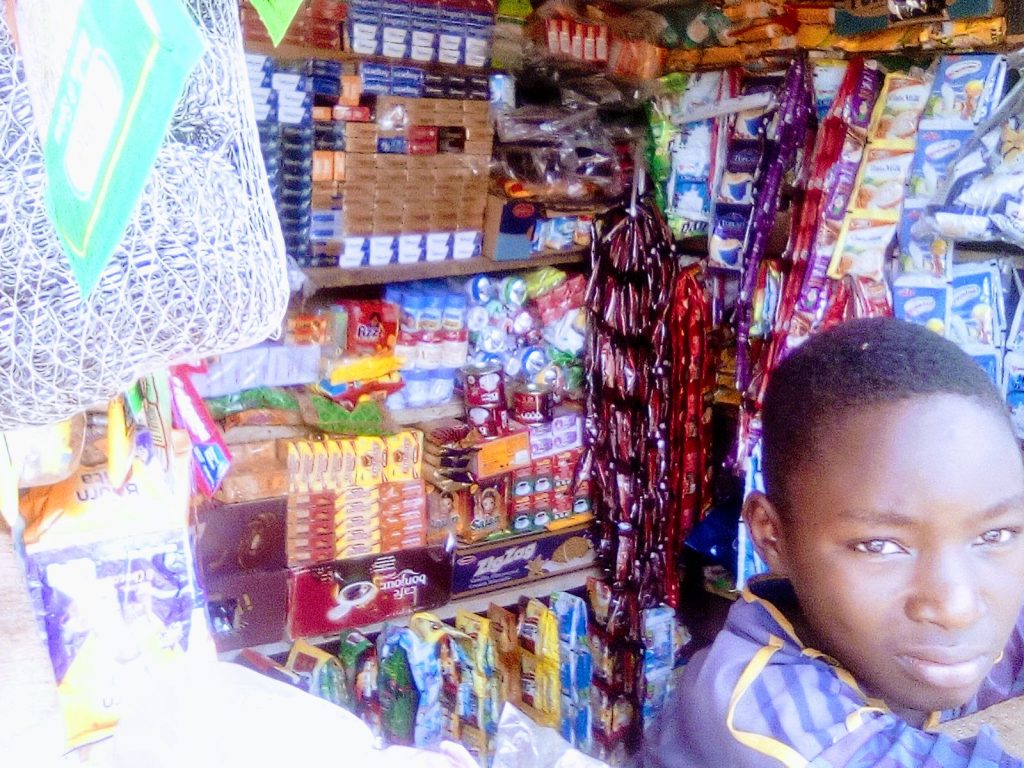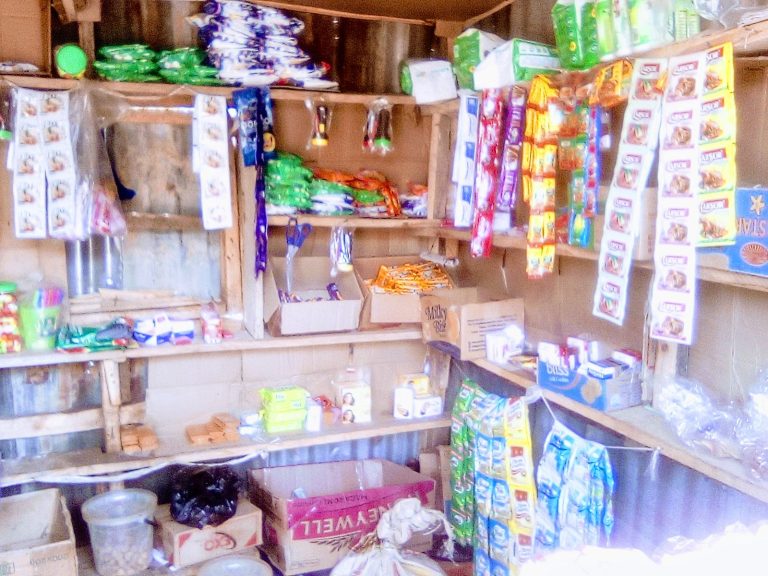Two out of ten Nigerians still smoke daily, and there is an estimated increase in the number of current smokers from 8 to 11 million. Despite the campaign against the consumption of tobacco, the number of Nigerians who smoke cigarettes stand at about 3.1 million, the Paediatric Association of Nigeria disclosed. The organisation put the daily number of Nigerian smokers at 2.4 million.
A study on the prevalence pattern of tobacco smoking in Nigeria shows over 40 billion cigarettes were consumed in Nigeria in 2015. There are around 1.1 billion smokers worldwide and about 80 per cent of these live in low- and middle-income countries (LMICs), where more than two-thirds of smoking-related deaths occur.
Smoking accounts for more than seven million deaths annually with about 10 per cent of these resulting from second-hand smoke. Every year, more than 16,100 of Nigeria’s population die from tobacco-caused disease.
In Sokoto state, most of those smoking start at an early age between the ages of 10 to 13 years with 3.3 per cent of smokers in the state being in-school adolescents in Sokoto Metropolis. Cigarette consumption in Sokoto state is alarmingly high, with sellers and smokers revealing daily habits that contribute to a serious public health issue. There is considerable variation across geopolitical zones, with the North-east having the highest prevalence of current smokers at 32.1 per cent and ever smokers at 43.6 per cent.
Several of the people who smoke cigarettes in Sokoto state do not have a set time to smoke. They smoke under the hot sun and even in cold weather. According to local cigarette sellers, many residents smoke more cigarettes daily than they consume food. This habit persists despite the known health risks and rising costs of tobacco products.
Daily habits and sales
Traders of cigarettes report that cigarettes are bought and consumed at an alarming rate, with some smokers finishing packs within a day. According to Mr. Sule Ahmad, a cigarette seller on Offa Road, “I go to the market twice a week to buy all kinds of cigarettes, and they sell out faster than any other goods I purchase. There are many people buying cigarettes; it’s more popular than other items.”
Sule sells brands like Pall Mall, Oral, Edge, Rothmans, Time, Pall Mall Switch, Target, and Benson, typically buying five rolls of each brand and selling out in less than three days.

“I sell brands like Pall Mall, Oral, Edge, Rothmans, Time, Pall Mall Switch, Target, and Benson. What I do is buy them in rolls; a pack costs N800, and a roll costs N9,800. It surprises me because they sell out in less than three days. I buy five rolls of each cigarette brand and sell them all in less than three days. Then I return to the market to buy more, and they are gone in less than a week. So, cigarette consumption in Sokoto is very high.”
He observes robust demand for brands like Pall Mall, Oral, and Rothmans, highlighting their popularity despite rising costs saying the consumers do not bother about the rising cost as the demand is increasing rather than decreasing.
Cigarette sellers across Sokoto State, such as Mr Abubakar Muhammad and Mrs Blessing Uju, report high sales volumes, often surpassing other goods in their shops.
Mr Abubakar buys bulk from a supplier who delivers directly to multiple vendors, ensuring a steady supply. “I do not go to the market for cigarettes because there is someone who supplies them to me. There are more than 13 of us selling cigarettes here, and everyone does well because of how many people smoke in this area.
“The bike man comes once a week, and I buy a lot because I sell more in the evenings than in the morning or afternoon. I buy each brand of cigarettes in rolls, usually 10 rolls per brand, and sell them all before the bike seller returns.”
Mrs. Blessing Uju, who recently added cigarettes to her grocery store inventory, told ASHENEWS that they sell out faster than any other product. “I’ve been selling groceries here in Sokoto State for over five years. A friend suggested I start selling cigarettes because people ask for them every day. So, I decided to add them to my shop.
“The first day I started selling cigarettes, I sold out of everything I bought, and I was really impressed. Since then, cigarettes have sold more than any other goods in my shop because so many people buy them. Even in the hot sun, people still smoke. The harmattan weather is even worse, but I buy cigarettes every day because people buy them so often,” she said.
Mr. Musa Muhammad, who sells cigarettes across from Dongo Daji House says he buys cigarettes every week but doesn’t sell all of them because many others also sell in the area.
“I buy cigarettes every weekend and don’t sell them all because there are more than seven of us selling cigarettes around here. The brands I sell include Time, Rotmans, Benson, Pall Mall Switch, and Pall Mall Brown. I open at 7 am and close at 8 pm. As soon as I open, people come for cigarettes more than any other goods I sell.
“Some days, I only sell cigarettes and nothing else. So, even when I go to the market, I use about 75 per cent of my money to buy cigarettes and the remaining 25 per cent to buy other things like cleaning products, soap, biscuits, and sweets.”
Smoking under various conditions
Sokoto residents smoke regardless of weather conditions, be it the scorching sun or the harmattan. Mr. Stanley Okolo, who smokes four to five sticks daily, exemplifies this trend. He buys cigarettes one stick at a time due to the proximity of a nearby shop, hence, he smokes about four to five sticks daily.
“My office is very close to the cigarette shop. Before I get to work, I stop by and smoke one to get ready for the day. Then, in the afternoon, I visit the shop again and have another one. By 5 pm, I take another cigarette break. When I finish work at 8 pm, I smoke one more before going home,” he said.
Similarly, Mr Audu Paul who lives in Sokoto North smokes two sticks daily, a habit he started due to the harmattan weather. “I buy cigarettes in the morning and evening, every day. I smoke one in the morning before going to work and one in the evening after work. It has been like this since I started smoking. I started because of the harmattan weather here in Sokoto,” he said.
Mr. Ezeh Chukwumezie, a heavy smoker from Area Commander, spends a significant portion of his income on cigarettes, even as prices have increased from N300 to N800 per pack. Despite the economic strain, he finds it difficult to quit due to nicotine addiction.
“I always buy a pack of cigarettes and finish it before the end of the day. It used to cost N300 per pack, but now it is N800. I don’t know why I can’t stop buying it. I smoke Pall Mall, which has 20 sticks, but it is not always enough for me in a day.”
“Even when the sun is blazing, I still smoke cigarettes. I don’t really know why, but I like smoking in any weather. It is really affecting my budget because every day, I have to set aside money for food, transportation to work, household expenses, and cigarettes,” he said.
Health Implications
The WHO estimated about 13 million smokers in Nigeria in 2012 with over 16,000 deaths attributable to smoking. In Nigeria, smoking is a leading cause of preventable death, with smokers typically living 5–10 years less than non-smokers. Following the 2003 World Health Organization (WHO) Framework Convention on Tobacco Control (FCTC), Nigeria ratified the convention agreement in 2005 and 2015, signed into law the National Tobacco Control (NTC) Act that regulates all aspects of tobacco control including advertising, packaging, and smoke-free areas.
Dr. Okezaie Emmanuel from Victory Hospital in Sokoto highlights the severe health risks, stating, “Smoking causes illnesses and is a major risk factor for many long-term diseases like cancer, heart problems, lung diseases, stroke, and diabetes.
“Tobacco smoke has more than 70 chemicals that can cause cancer. It also has nicotine, which is a very addictive drug affecting both the body and mind. When people smoke tobacco, they become physically and mentally dependent on nicotine.
“Smoking is a top reason for deaths that could be prevented, and it is closely linked to a high number of cases of lung cancer, chronic lung diseases like chronic obstructive pulmonary disease (COPD), heart problems, and stroke. The impact of smoking differs based on how often and for how long someone smokes. Starting smoking at a younger age and choosing cigarettes with more tar increases the chances of getting these diseases”, he explained.
Cigarette consumption in Sokoto State poses significant health risks amid widespread addiction and economic dependency, necessitating robust public health interventions and awareness campaigns to mitigate its adverse impact on society. Addressing these issues requires concerted efforts in public health education, policy enforcement, and community-based interventions to mitigate smoking-related health risks and economic dependencies.


